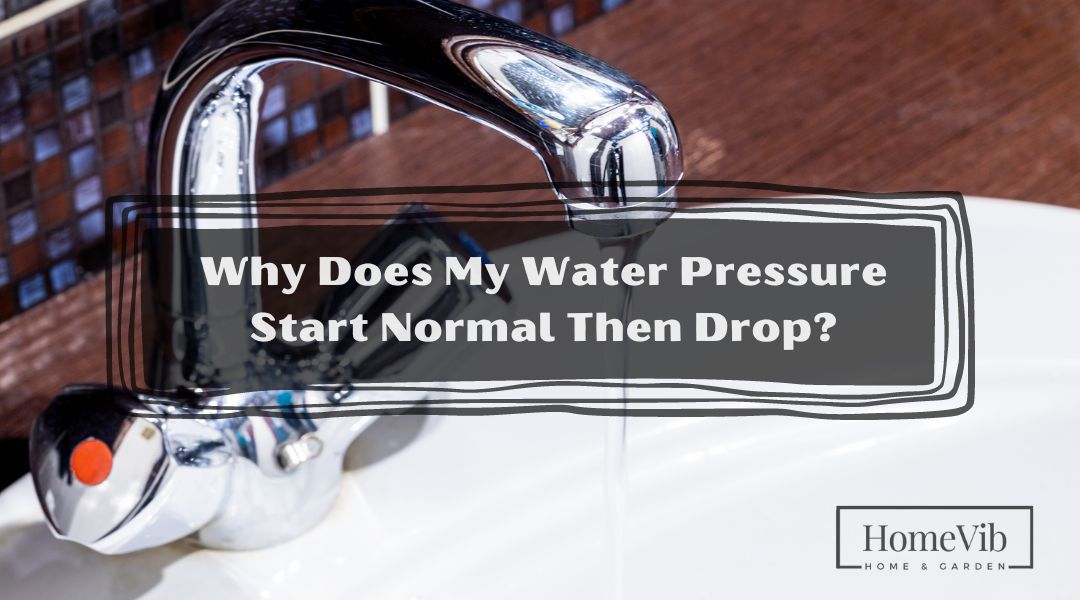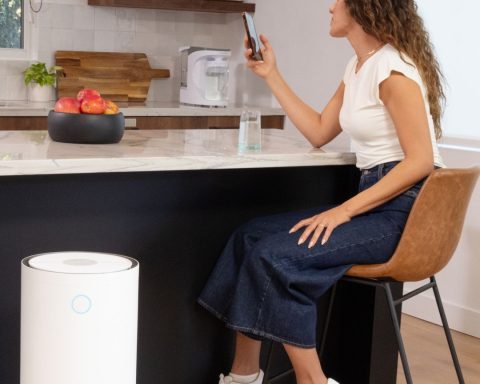The water pressure starting normal and dropping abruptly is inconvenient, especially when doing your daily hygiene routine or household chores.
However, some issues with your water pressure are fixable by your efforts and essential tools. On the other hand, some issues are severe that only a plumber can fix, and intervention from the homeowner could worsen the problem.
So why does water pressure normally start when you turn them on but suddenly decrease as you use them?
No matter what the situation is—in general, the common issue is due to a faulty or damaged pipe system. While in some cases, the causes are a faulty water heater or issues with a leaking pipe.
In this article, I will discuss other common issues you can look at. I will also share potential solutions to the problem of regaining normal water pressure.
Why Is My Water Pressure Sometimes High And Sometimes Low?
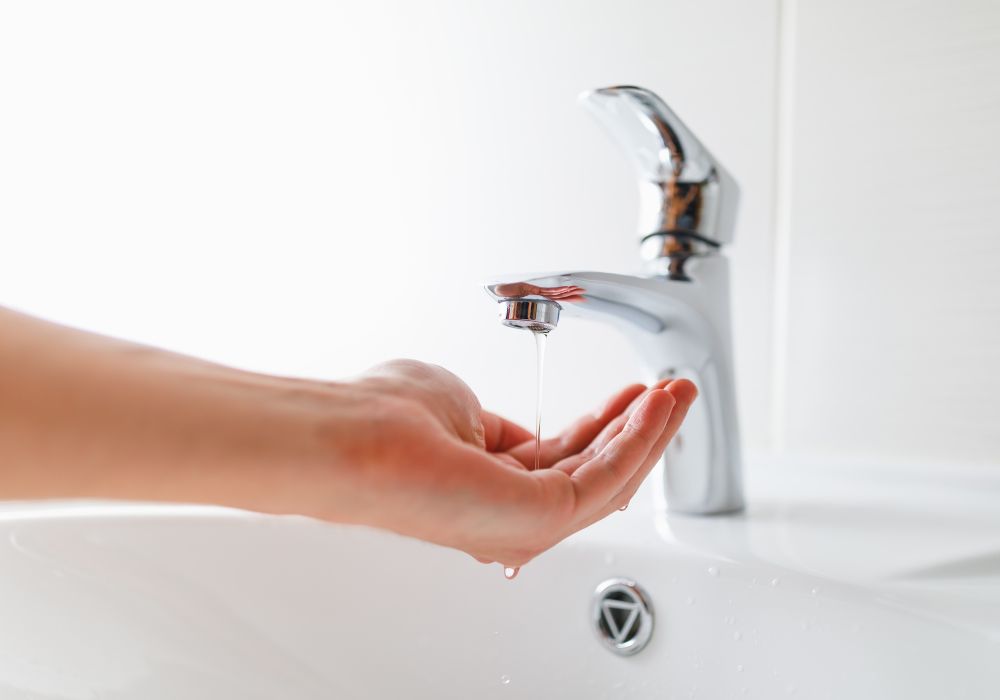
The inconsistent water flow is likely due to an obstruction clogging the pipes. The clog causes intense high pressure of water, then releases a sudden burst of high-pressure water when it pushes it forward.
Another cause of the issue might be deeper than you think. Sometimes when the local government conducts repairs or maintenance in the city’s main water line, it causes an abnormal water flow in your home and the community.
You can contact your neighbors if they have the same issues. Or you can contact your city administrators or local plumber to report the problem with your water pressure to assist you.
Why Does My Water Pressure Start Normal Then Drop?
The following are common reasons for the inconsistent water pressure you are experiencing in your home.
Clogs or Blockage
The clog is also the reason for the abrupt change in water pressure from normal to drop. As the rush of water pushes forward, the obstruction hinders them from going through a water outlet.
It releases normal or low water pressure when you open a faucet or shower, but the high pressure of water will burst and back again to normal or low as it pushes blockage.
Leaks
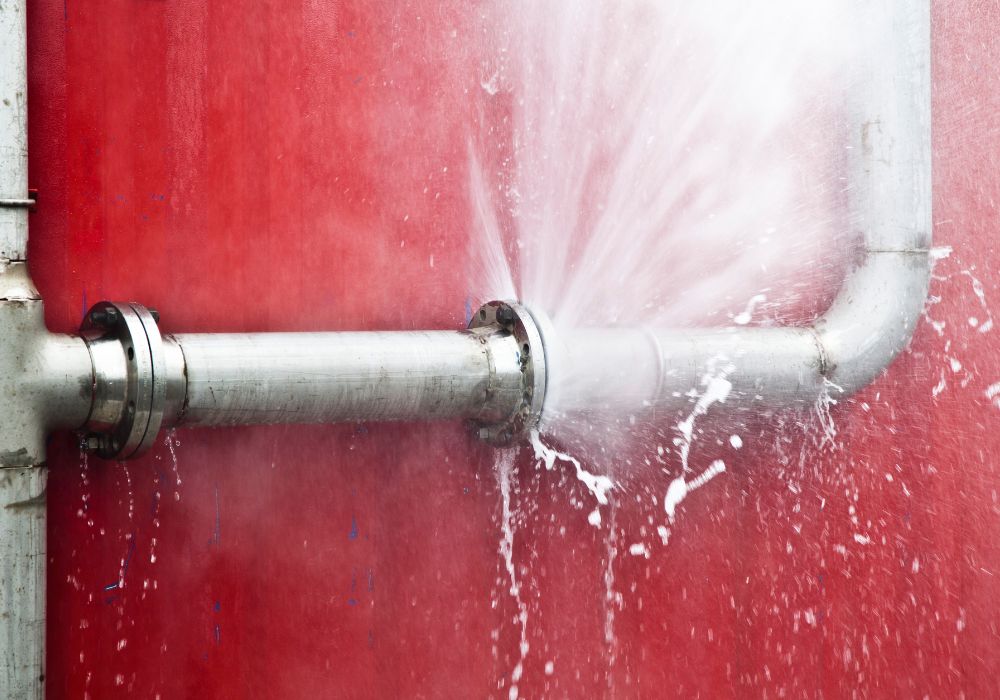
Aside from clogs, other culprits for the inconsistent water pressure include a faulty or worn-out pipeline in your home. Faulty pipes cause leaks. And the leaks are the result of the constant use of high-pressure water.
Yes, high-pressure water provides optimum satisfaction, but it won’t hurt to use low-pressure or medium occasionally because the frequent use of high-pressure water degrades the pipes in the long run.
Faulty Water Heater
It’s reasonable to use the water heater during the winter season. However, you may refrain from using the heater occasionally when it’s unnecessary.
The constant use of the water heater also depreciates the pipes fast and the main water line.
A worn-out pipe could result in the pipes leaking, which may significantly affect the water pressure.
In addition, warm water produces hard water that builds up sediments in the pipes. As time passes, it progressively accumulates the sediments that create a blockage and prevent the normal water pressure of cold and hot water.
Shut-Off Valve Not Turned Properly or Damaged
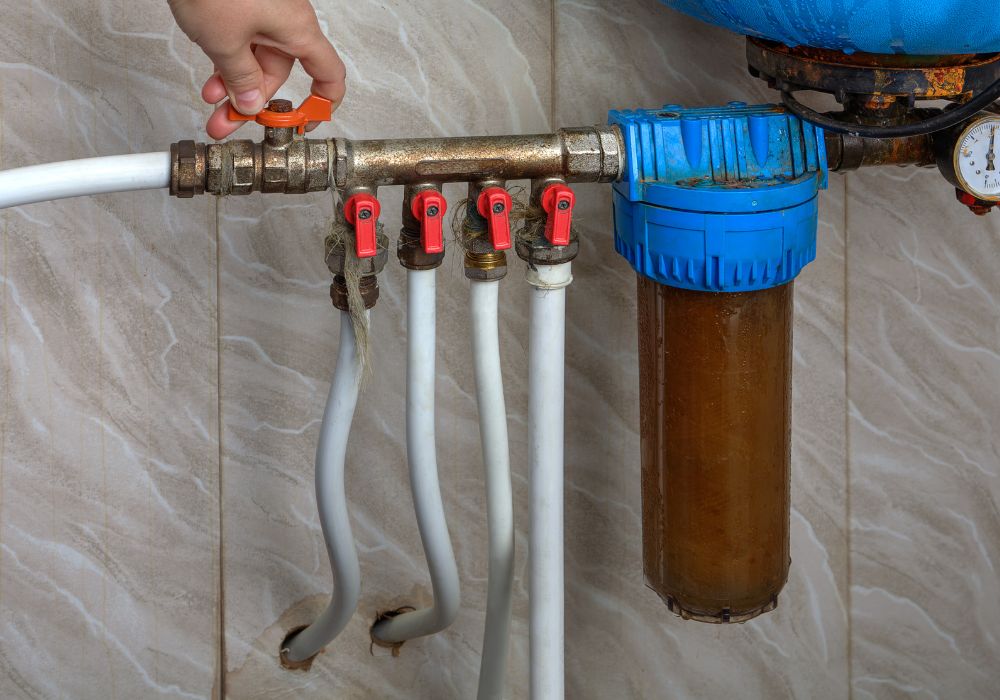
One possible reason for the issue is the improper turning of the shut-off valve. Once you are experiencing an inconsistent flow of water, you can try checking the valves first before turning to other remedies.
If it doesn’t work, a damaged valve is another reason for the problem. The damage may be due to the frequent use of hot water. The hot water is hard water that encourages the buildup of sediments and minerals.
If your pipes are faulty, it is an issue that a professional can fix. Never attempt to replace or fix the valves independently because the problem could worsen significantly.
Local Government Intervention
The local government doing repairs or maintenance in the water line could also be what’s causing the abrupt change in water pressure.
And if this is the case, the problem will be fixed once government workers finish the maintenance.
How Do I Fix Inconsistent Water Pressure?
Several solutions are available for fixing the inconsistent water pressure, including the following.
Measure the Water Pressure
First and foremost, you must be sure you are having trouble with your water pressure. And you can do so by measuring water pressure using a pressure gauge that you can buy in a hardware store or home depot.
The normal water pressure should be between 30 to 80 PSi. Although a low water pressure is inconvenient, you don’t want a water pressure than 80 PSi either because they violate codes in some regions.
Clear the Clogs
The buildup of sediments and minerals from hard water causes the blockage. Sometimes the blockage goes away as the water pressure pushes the clogs.
But if it persists, there are home remedies you can perform, like using a toilet to unclog the pipes if the blockage is shallow.
Another one is by using simple home items like vinegar and zip lock. Fill the zip lock with vinegar and put it over your shower or faucet.
Tie the zip lock tightly with a piece of string so it would fall off.
Leave it and allow it to soak overnight to dissolve the sediments and minerals. After 24 hours, remove the zip lock and clean the faucet or shower.
Turn the Water Valve
Once you begin experiencing inconsistencies in water pressure, sometimes the solution is as simple as turning the valves.
The issue may be the improper valve switch during repairs or maintenance of your home’s water line.
Contact Your Neighbor or Local Authorities
If the problem is due to the maintenance of the government, then you can contact your neighbors first if they are experiencing the same problems as well.
Or you can reach out to your local government directly.
Contact a Professional Plumber
If all else fails and the local government is not the culprit, the problem is probably due to faulty pipes, valves, or severe blockage.
It is best to contact your plumber, especially if the pipes need replacement or the clogs are severe.
FAQ
What Is Normal Water Pressure?
You must note that the water pressure measurement is in PSi, the acronym for pounds per square inch. And it represents the current water pressure in your home.
The normal water pressure in a typical home should have a PSi of 30 to 80. You must also remember that high pressure of over 80 PSi in some regions violates local area codes.
How Do I Know If My Water Pressure Is Unequal?
Every home’s main water line should have a hot water cylinder that tells whether the water pressure isn’t equal by referring to the “Low Pressure” or “High Pressure” indicators.
If they are absent, you can try turning the cold and hot water simultaneously. If the temperature is not consistent, you likely have unequal water pressure.
Why Do I Lose Water Pressure When I Turn On More Than One Faucet?
Inconsistent water pressure results from clogs, worn-out pipes, or damaged valves. If your water line has existing problems, turning on more faucets and showers further lowers the water pressure.

